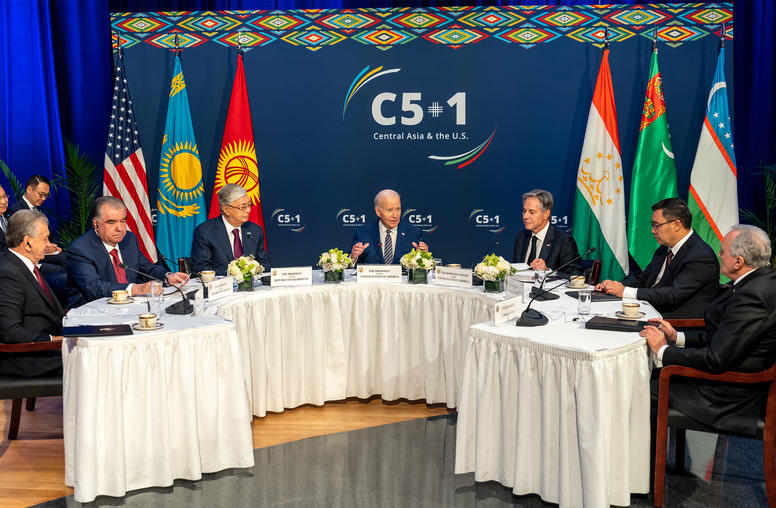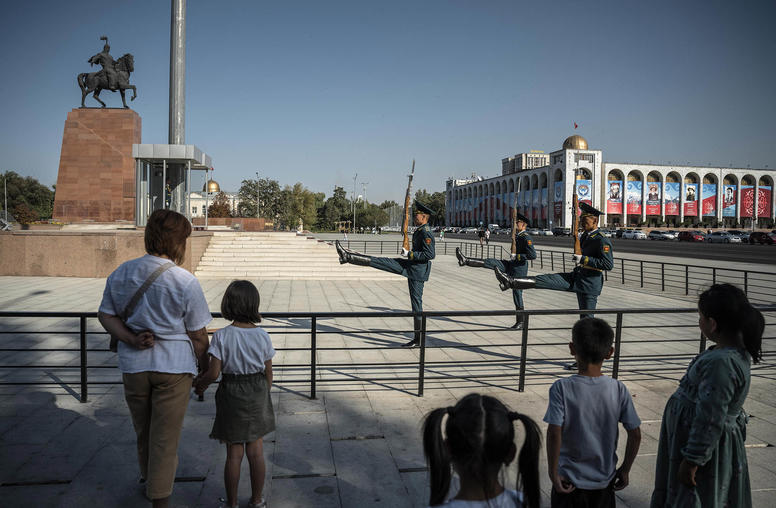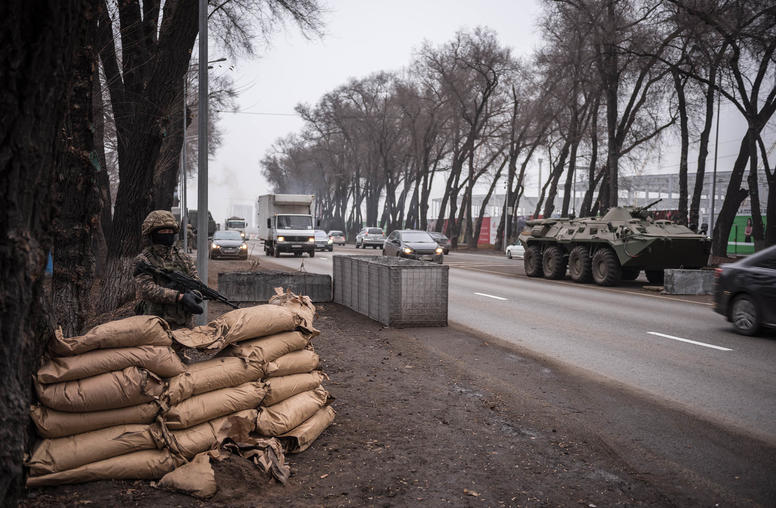Program Officers Ted Feifer and Mike Lekson led a workshop on negotiations and diplomatic skills for professionals for the five Organization for Security and Cooperation in Europe (OSCE) centres in Central Asia in Almaty, Kazakhstan, November 11-13, 2003.
Program Officers Ted Feifer and Mike Lekson led a workshop on negotiations and diplomatic skills for professionals for the five Organization for Security and Cooperation in Europe (OSCE) centres in Central Asia in Almaty, Kazakhstan, November 11-13, 2003. There were 15 participants: 9 national and international OSCE staff, 5 members of regional OSCE-associated legal and environmental non-governmental organizations, and one official from the Uzbekistan National Center on Drug Control. Workshop objectives were to increase participants´ effectiveness by familiarizing them with the use of problem-solving frameworks; strengthening their negotiation, diplomatic and third party skills; and sharing lessons learned in the prevention, management and resolution of conflicts.
Trainers reviewed the core concepts of communication, negotiation and the roles of a third party, as well as introduced new techniques that would make participants more effective in the field. Participants applied their skills in a constantly more challenging series of exercises and simulations. They explored the utility of more structured approaches to problem solving in field missions, and applied their conflict management and resolution skills in an exercise using the 1995 Crimea conflict scenario. They analyzed conflict interactions with difficult people, and how best to respond to them. A village conflict exercise provided opportunities to strengthen mediation skills, while a complex multiparty mediation simulation helped them practice the broad range of skills developed in the workshop.
field missions, and applied their conflict management and resolution skills in an exercise using the 1995 Crimea conflict scenario. They analyzed conflict interactions with difficult people, and how best to respond to them. A village conflict exercise provided opportunities to strengthen mediation skills, while a complex multiparty mediation simulation helped them practice the broad range of skills developed in the workshop.
Participants responded enthusiastically to the workshop and felt it effectively addressed their professional needs. One said: "I have participated in many trainings; this program was unique. Goals and tasks were set. Very lively training was clearly taken from experience. Interesting climate. Participants have to take many things into account; clever way of setting tasks for participants. A second found the workshop very relevant to the issues he faced daily in the Central Asian context. Another participant commented on the program: "It was really extremely useful. This is what I´ve long been waiting for. I had been aware of some things that were discussed during the workshop before, but needed some specific information, explanation, and advice on them, which I got. Thanks."



